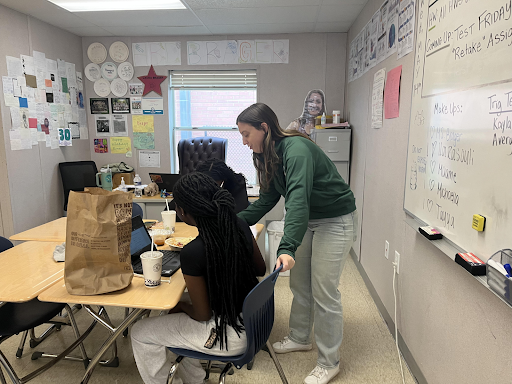
A teacher is supposed to serve as a role model, someone you can look up to and trust. Sadly, this is often not the case. As summer break approaches, many students reflect on their school year and think about the ups and downs experienced in class. Whether you get straight A’s, failed a class, or anything in between, I bet your teacher has something to do with that outcome.
Why do students care so much about which teachers they have? Because teachers shape the way a student learns, how they feel about the material and how they manage it. A teacher can either boost or diminish a student’s confidence in the subject, as well as their understanding of the content. Students spend many hours in the classroom, and they would rather spend their time with somebody who encourages and supports them, rather than with someone who makes them feel discouraged and insecure.
I know too well that a teacher can have a huge impact on my performance and overall grade. First semester of sophomore year, I struggled to understand certain concepts in two of my classes. No matter how hard I studied, the information didn’t sink in, with my scores on tests reflecting this. I felt like my teachers weren’t setting me up for success and that their teaching styles weren’t working for me and my peers. I knew that I wasn’t reaching my full potential.
However in the second semester, my schedule switched. I noticed a change in my performance almost immediately following the start of the third quarter. My grades and understanding of content skyrocketed while those two classes became significantly less challenging and less stressful.
Feeling supported by a teacher is important, but it is also crucial that the teacher actually understands the content that they are teaching. From experience, I know that it can be discouraging to ask a question in class, with the teacher responding by saying that they don’t know or they can’t help you. If your teacher doesn’t know the material, then how will you be able to learn it? This type of situation typically ends up with the student attempting to teach themselves, which isn’t an easy path to success. It would be much less stressful if the teacher knew the material in the first place and was able to teach in class.
Another way teachers have a great influence on their students is through their teaching style. If a teacher spends the lesson speaking or lecturing to the class with a monotone voice, they might not seem very interested in the lesson. In turn, those students won’t be as interested either. Meanwhile, if the teacher gives an engaging lesson, filled with interactive activities such as practice questions, games, or group work, then their students may be more engaged and ultimately, more successful.
According to the ING Foundation Survey, 98% of Americans believe that a good teacher can change the course of a student’s life. Students can be impacted greatly by their teachers; the words teachers say to their students matter and can leave a long-lasting impression.








